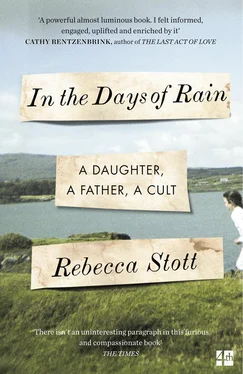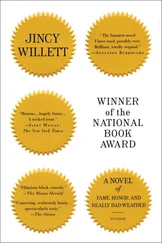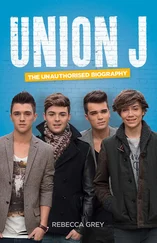After the funeral and the wake and the speeches and the fire we burned his chair in, my brother and I ventured into my father’s study, stacked high with papers. It all had to be cleared out, my stepmother said, if the Mill was to be sold. We rescued anything that looked important from piles of unpaid bills, receipts, photographs, and instructions for long-dead appliances.
If I was going to finish his book, I told my brother, I was going to need everything that looked as if it had anything to do with the Brethren. So we shoved stacks of letters and diaries and yellowed documents into boxes without sorting through them. My brother and my son helped me carry the six boxes up three flights of stairs in my Cambridge house and slip them into the dark and dusty space under my Victorian iron bed. I’d deal with them later, I told myself. When I was ready, when I had time.
A month after my father’s funeral, my stepmother rang to say that she’d been to see the doctors about her stomach cramps. After a series of tests they had diagnosed her with bowel cancer. She’d be fine, she said. She had her cousins nearby. There’d be a course of chemo. Her cousins would drive her back and forth from the Mill to the chemo sessions. Friends would come in to help with the garden. She didn’t need me to come out there. She didn’t need anything from any of us for now. She’d let us know if she did.
How could two newlyweds, living out an Indian summer, planting a garden on the banks of a river, both have been incubating cancerous growths, his pancreatic, hers bowel? Did his cancer explain the biliousness of his behaviour, his rants and storms, the way he’d started to talk to her in those last years, his complaints about how she refused to sit and watch Shakespeare with him?
‘Perhaps she just doesn’t like Shakespeare,’ I’d said to him. ‘It’s not a crime.’
‘ Midsomer Murders ,’ he said. ‘ Midsomer bloody Murders . That’s the level of philistinism we are talking about here.’
‘I’d watch Midsomer Murders ,’ I thought to myself, ‘if the alternative was listening to you lecture me about Wilson Knight and the late plays of Shakespeare for the fourteenth time.’
I wanted to help my stepmother. We all did. But though I drove up every few weeks, I now dreaded the sight of the Mill. Puddleglum , the little second-hand cabin boat my father and I had bought together, moored on the river under the willow tree, was now covered in mildew and leaves. The lawn grass was running to seed, the birch trees wilting in the sun. The pyre where we’d burned my father’s chair had left a scorch mark and stumps of charcoaled wood on the grass. Someone needed to rake it all in and put some grass seed down.
My stepmother was struggling not just with the chemo but also with the bank. My father had left her almost penniless. I printed out the bank statement from my father’s computer a week after the funeral. He’d placed scores of online bets in those final days, most made in the middle of the night when we’d all been asleep. Just one big win, he would have been telling himself. Just one big win so that he could leave my stepmother some money with which to pay off the debts.
I reckoned up the bets. He’d spent thousands of pounds in those last weeks by moving money from one credit card to another. It wasn’t even his money; it was the last of my stepmother’s small inheritance.
I volunteered to spend an afternoon at the Mill when my stepmother was in the hospital and her cousins were away for their summer holidays. I’d mow the lawn and water the birches, I told her. It was the least I could do.
I drove slowly up the long lane that gave way to the dirt track that followed the course of the river, coal-black fen fields in one direction and rising corn in the other. I parked the car and let myself in using the key she kept under a rock near the back door. I found the mower in the shed, the blades encrusted with dried grass.
When the mower started up, the sound seemed a rude imposition on the birdsong and silence, but the smell and the stripes of mowed grass made me feel I was pushing the encroaching wilderness back a little, that I could make all of this tidy again, at least for now.
Somewhere in the heat of the day, amid the smell of cut grass and the roar of the machine, I strayed into a corner of a flower-bed. On the edge of my vision a black cloud rose up and hummed low and close, smoke-dark against the white of the birch trunks. The first sharp sting of venom broke my concentration. The second made me release the handle of the mower. It wasn’t until I’d run screaming through the empty garden, casting off my clothes, and taken refuge in the sitting room, shaking, hurt and enraged, that I examined my skin in the mirror. I counted twenty-one stings, raised, hot mounds on my arms, neck, hands. I’d run over a wasps’ nest in the dark fen soil of that garden, in the twilight of its grieving afternoon.
Can a dead man conjure wasps? Can an owl flying at dusk take a dying man’s soul? Out there in that pagan fen landscape that disgorged Roman silver plates on the ploughshare, anything seemed possible. Like the house in Alan Garner’s The Owl Service , there were unaccountable scratchings in the eaves of the Mill now, presences everywhere.
‘Leave me alone,’ I said to the empty air. ‘Leave me a- lone . I’ll finish your book when I’m ready. You can’t make me.’
The contents of those six boxes under the bed made me think of chaos, the spillage of my father’s body after his death, the gritty cremation ashes we’d scattered on the river by the Mill, the mess of his life, the impossibility of telling the Brethren story, and my own grief. They stayed down there – under the bed, gaffer-taped up.
There was so much else to do. A new job and a commute, teenagers to cook for, homework to supervise, deadlines to meet, students to teach, lectures to write and a mortgage to pay. It was two years before the letters from debt collectors and credit card companies and court summonses stopped coming, and before I stopped posting out the photocopies of my father’s death certificate with the covering letter that explained that he’d died without assets , that his debts and bills could not be paid. By then the Mill had been sold and my stepmother had gone to Australia to live near her family.
What had I actually promised him, I began to wonder. If I was going to finish his book, I’d have to describe what happened in the sixties, in that decade he couldn’t bear to look at. No one could understand the recklessness of his behaviour without understanding that. But I didn’t want to revisit that decade any more than he had. No one in the family wanted to go back there. Sometimes my father’s cousins would refer to the years we were ‘caught up in the Brethren’, or ‘living in the Jims’, or ‘living under The System’. Most of them seemed ashamed that they hadn’t seen through it at the time; some clearly felt angry and duped. Most wanted to tell me that they should have got out earlier. But no one knew, they’d say. No one knew how bad it was going to get. Then they’d change the subject. Best not to dwell on the past. Better to focus on the future.
Even if I did get a book written, the Brethren were rich and powerful. They attacked people who criticised them. They employed legal teams. When I’d once written about growing up in the Brethren for a Sunday magazine, a Brethren ministering brother had sent me a letter to say they were praying for me; that meant they knew where I lived. I’d moved house since then, but I knew they could track me down if they wanted to, wherever I was. What would my family have to say if I started asking questions about that history now? And I’d have to find a way of not writing about my mother, of steering around her, because she wouldn’t want me to make her remember any of that.
Читать дальше












